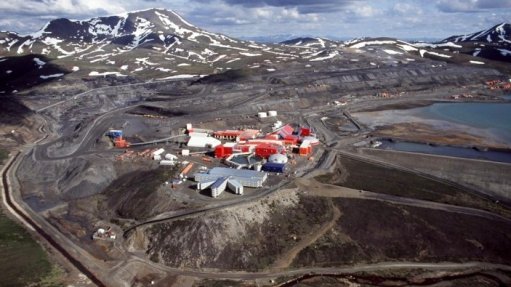BMI predicts more stable metal prices, critical mineral deals in 2024

BMI unpacks its expectations for the global metals market in 2024
Research agency BMI on January 17 unpacked the key themes for metals and mining for the year, highlighting that the sector is making a modest recovery amid global deceleration.
BMI commodities analysis head Sarbin Chowdhury says the agency has an overall positive view on metal price forecasts, which are averaging slightly higher this year than in 2023 and above pre-2020 levels. However, there will not be a return to the high price surges of 2022.
Although there are some factors capping metal price growth, the year will hold more price stability compared with recent years.
Chowdhury expects copper to lead in terms of price gains in the metals market, owing to tight supply at the moment, while iron-ore will lead gains on the ferrous metal side owing to positive sentiment over China’s economic stimulus measures.
Despite the Mainland Chinese economy facing downside risks, including in its property sector, which BMI forecasts will not recover this year, China remains the world’s largest producer and consumer of metals, thereby greatly influencing the global market for metals.
Chowdhury says China is experiencing its slowest rate of economic growth since 1990, barring the pandemic-stricken 2020 year.
Further, BMI is optimistic that precious metal prices will be boosted by falling interest rates and repo rate cuts in the US.
BMI forecasts a gentler slowdown in the US economy than previously expected, which supports an increase in metals prices, though not a rebound.
Overall, BMI believes this year will be a close tug of war between fundamentals and sentiment, with most metal markets tightening in 2024, which forms the basis for the agency’s positive price outlook.
The power and construction sectors continue to drive demand for all metals; however, household spending remains constrained and will not be driving demand upward in a significant manner.
CRITICAL MINERALS
BMI commodities analyst Amelia Haines says minerals such as copper, lithium, nickel and cobalt are vital for electrification, hence the agency expects to see significant growth in these sectors globally this year.
The percentage of new projects compared with existing projects is highest for lithium and copper.
Importantly, Haines explains there is a growing interest in reducing dependency on Mainland China to reduce supply chain risks.
Currently, the mining and processing of key transition metals is highly geographically concentrated, presenting downside risks to the stability of global supply. In 2022, China produced 42% of global refined copper output, 17% of refined nickel output, 74% of refined cobalt output and 65% of refined lithium output.
To this end, BMI expects to see major economies introducing measures to boost critical mineral production, including incentives to bring production on shore and more partnerships with resource-rich countries.
In turn, mineral-rich nations have a different agenda given their position in the global supply chain.
Haines says resource nationalism is set to intensify as greater gains from natural resources are pursued. This involves increased regulation and policy changes, as well as higher taxes, more chances of projects being stopped and overall tighter regulation, which all impact negatively on investor sentiment.
The agency also expects to see a rise in government intervention-related risks as a growing concern in the industry. Government in the mining sector can have a significant influence on the domestic industry landscape.
Haines expects more mining companies will need to work with the State to avoid disruptions to operations this year.
DEAL ACTIVITY
BMI senior commodities analyst Olga Savina reports that mergers and acquisitions (M&A) will continue to be prevalent in the metals and mining sector this year, driven by the global energy transition and industry consolidation trends.
Consolidation is among the efforts companies are taking to bridge the pending critical mineral supply gap.
She says M&A activity in 2023, in terms of value, approached the highest levels in the last decade, while the number of deals remained virtually unchanged compared with 2022.
Savina foresees significant investment in battery minerals such as lithium to continue, as well as M&A activity in the copper industry.
ESG
Haines says most miners are striving to reach net zero by 2050, with many having made significant progress in this regard. With the number of operating mines set to increase, it is imperative that mines decarbonise, especially to remain competitive.
Among the key ways to decarbonise is to transition to the use of renewable energy to power mines and the use of battery-powered hauling vehicles.
Haines expects banks and other investors to put greater pressure on mining companies to implement stricter safety regulations.
Access to capital will become more dependent on environment, social and governance (ESG) credentials. Investors now wish to align with companies with strong green metal portfolios and companies who have taken steps to reduce their emissions.
“The growing importance of corporate social responsibility will shape investment trends in 2024,” Haines states.
BMI explains that companies that are failing to commit to improving ESG standards risk reducing investment attractiveness and losing their licence to operate.
Mining companies will also keep adopting advanced technologies such as artificial intelligence (AI), autonomous vehicles and drones to enhance efficiency and safety, as well as competitiveness.
On that note, Savina expects technological advancements to take centre stage this year as new technologies allow for increased efficiency and safety of operations. BMI anticipates the use of AI autonomous vehicles and drones will pick up significantly.
There is also growing interest in the deep sea mining space, particularly to extract copper, cobalt and lithium.
BMI says the discussion around seabed mining regulation is on the brink of a much-anticipated resolution, with the first commercial permit to exploit this untapped frontier possibly being granted.
The International Seabed Authority (ISA), an organisation that governs the deep-sea mining industry, was expected to finalise the legal rules by the end of July, but several discussions postponed the adoption of rules to 2025.
However, this leaves a legal loophole that is known as a “two-year rule”, allowing miners to apply for commercial permits this year.
The Metals Company, for example, intends to submit an application for deep sea exploitation after an ISA meeting in July and plans to start production by the end of 2025.
Article Enquiry
Email Article
Save Article
Feedback
To advertise email advertising@creamermedia.co.za or click here
Press Office
Announcements
What's On
Subscribe to improve your user experience...
Option 1 (equivalent of R125 a month):
Receive a weekly copy of Creamer Media's Engineering News & Mining Weekly magazine
(print copy for those in South Africa and e-magazine for those outside of South Africa)
Receive daily email newsletters
Access to full search results
Access archive of magazine back copies
Access to Projects in Progress
Access to ONE Research Report of your choice in PDF format
Option 2 (equivalent of R375 a month):
All benefits from Option 1
PLUS
Access to Creamer Media's Research Channel Africa for ALL Research Reports, in PDF format, on various industrial and mining sectors
including Electricity; Water; Energy Transition; Hydrogen; Roads, Rail and Ports; Coal; Gold; Platinum; Battery Metals; etc.
Already a subscriber?
Forgotten your password?
Receive weekly copy of Creamer Media's Engineering News & Mining Weekly magazine (print copy for those in South Africa and e-magazine for those outside of South Africa)
➕
Recieve daily email newsletters
➕
Access to full search results
➕
Access archive of magazine back copies
➕
Access to Projects in Progress
➕
Access to ONE Research Report of your choice in PDF format
RESEARCH CHANNEL AFRICA
R4500 (equivalent of R375 a month)
SUBSCRIBEAll benefits from Option 1
➕
Access to Creamer Media's Research Channel Africa for ALL Research Reports on various industrial and mining sectors, in PDF format, including on:
Electricity
➕
Water
➕
Energy Transition
➕
Hydrogen
➕
Roads, Rail and Ports
➕
Coal
➕
Gold
➕
Platinum
➕
Battery Metals
➕
etc.
Receive all benefits from Option 1 or Option 2 delivered to numerous people at your company
➕
Multiple User names and Passwords for simultaneous log-ins
➕
Intranet integration access to all in your organisation


















